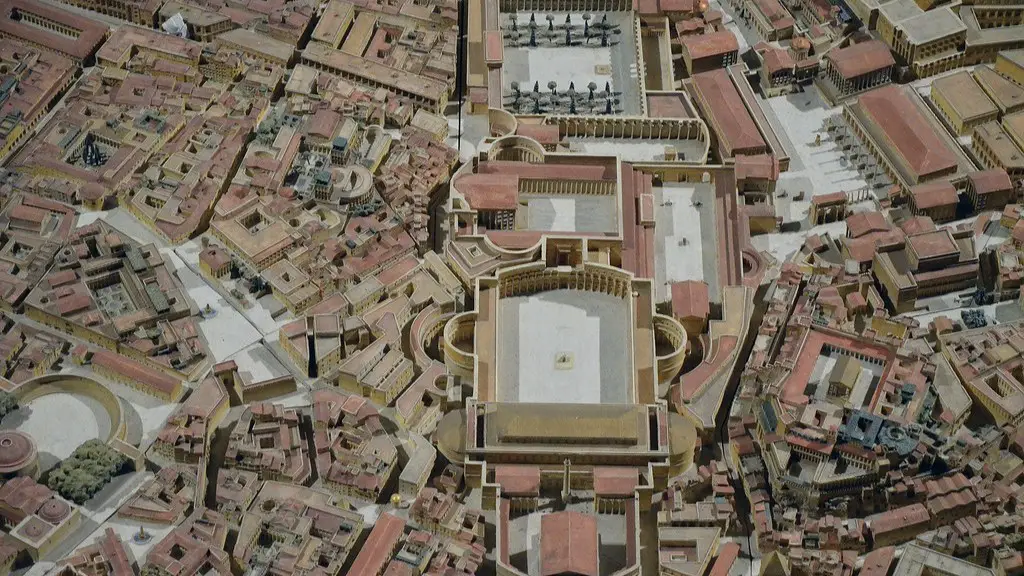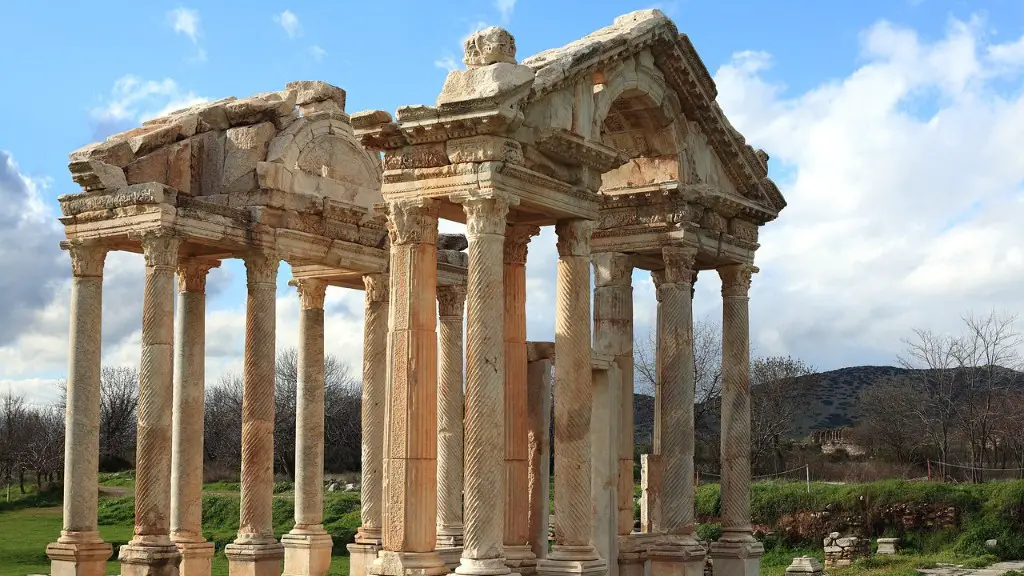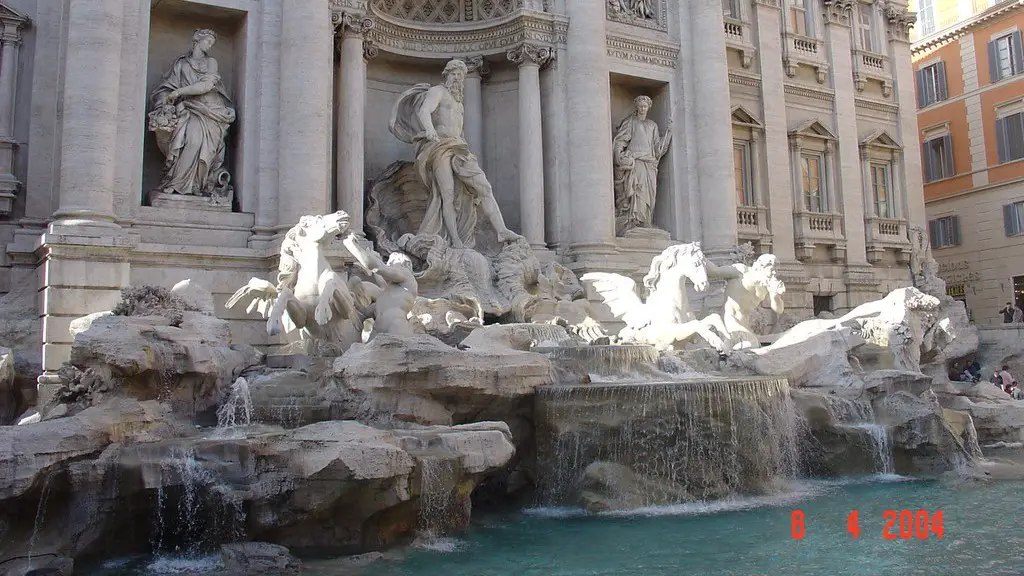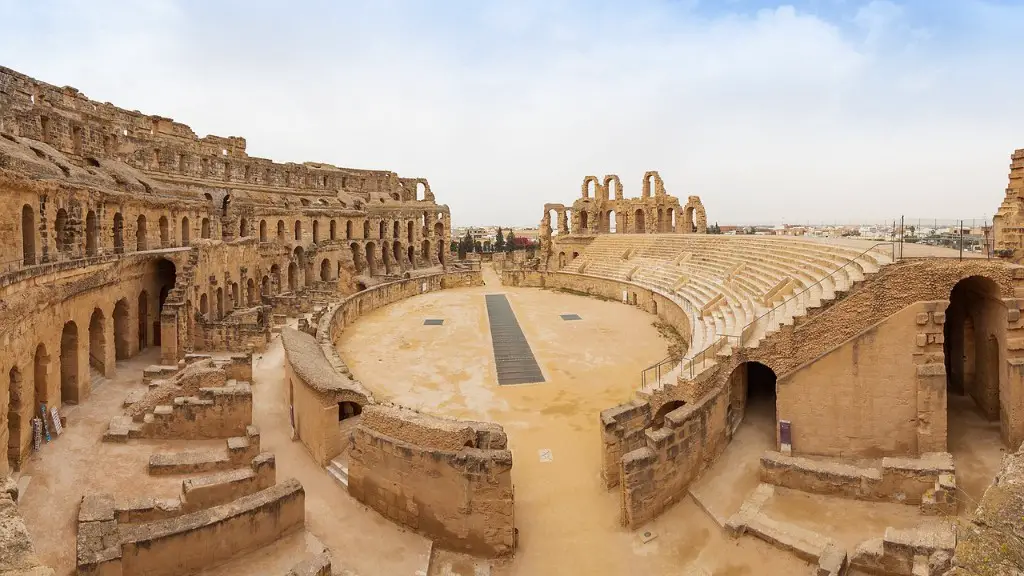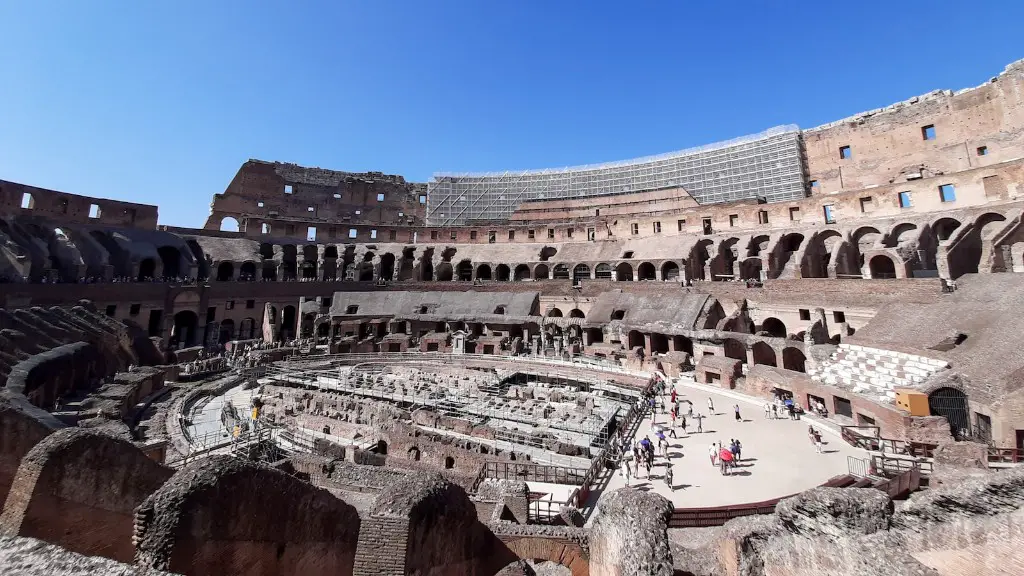Background of Ancient Rome’s Conquest of Palestine
In 63 B.C., the city of Rome, under the command of General Pompey, conquered the region of Palestine and brought it under the control of the Roman Empire. This region, commonly known as the “Holy Land” or the “Land of Israel,” was an important cultural, political, and religious center for the Middle East in the ancient world. The ancient Romans saw this conquest as an important part of their empire-building process and were determined to exert their control and power over Palestine. By doing so, they were able to extend their reach over the entire Mediterranean region.
The stratification of classes was a common practice in the Roman Empire and was much like those found in other ancient societies such as Egypt and Greece. Roman citizens were at the top of the class system, followed by freedmen, non-citizens, and slaves. This same class system was applied to the conquered people of Palestine. Roman citizens living in Palestine were treated as a privileged elite, while the native population was given lower status. This hierarchical system was used by the Romans to control Palestine and to discourage any rebellions or other acts of resistance.
The Romans also instilled a system of taxation in Palestine. The conquered people were required to pay a poll tax, which was a form of taxation that affected only those in the lower classes. This tax was usually collected by Roman imperial officials, and the money went to the Roman treasury. This form of taxation helped to ensure that the Romans had control over the region and its people, as the taxes helped to support the Roman military and keep it funded.
The conquerors also imposed a number of cultural and religious laws on the conquered people of Palestine. The Romans were polytheists, and they frowned upon the practice of monotheism, which was the religion of the Jews living in the area. This led to increased pressure on the Jews to assimilate and to abandon certain aspects of their traditional culture and beliefs. The Roman authorities also prohibited certain Jewish practices, such as circumcision, which was an important part of their religion. This was an attempt to suppress and control the Jews, who were seen as a threat to Roman rule.
Incorporation of Military Force
Ancient Rome also sought to control Palestine by incorporating military force into the area. Roman legions would frequently be sent to the region to quell protests and rebellions, but they also served to intimidate the population and demonstrate the might of the Roman Empire. This helped to ensure that the conquered people of Palestine knew that they were under the control of Rome and that resistance to Roman rule would not be tolerated.
The Romans sought to extend their cultural influence to Palestine as well. They viewed the region as a source of luxury goods, such as spices and incense, and Rome’s elite were eager to acquire these items for their own use. The Romans also desired to acquire the natural resources of the region, such as timber, stone, and marble, which were used in the construction of public buildings in the capital city of Rome.
The Romans also wanted to increase their own power and influence by placing their own rulers and governors in charge of the region. This meant that the Roman administration in Palestine was able to control the people, their resources, and their economy. This helped to ensure that Rome maintained its influence in the area and that it would continue to have access to the resources and luxury goods that it desired.
Impact on the Local Population
The Roman conquest of Palestine had a significant impact on the local population. Many of the Jewish people living in Palestine were enslaved by the Romans and forced to work in agricultural or industrial fields. This greatly increased the economic burden for many of the region’s inhabitants and led to a rise in poverty and hardship. In addition, many of the local inhabitants were displaced from their homes, leading to a major displacement crisis that would last for centuries.
The imposition of Roman rule also had a significant religious impact on the people of Palestine. The Jews were increasingly isolated from their own religious traditions and were instead expected to conform to the Roman culture and beliefs. This increased the tension between the conquered population and their conquerors, as the Jews felt that their religion and culture were under threat.
The Roman conquest of Palestine also had a major political impact. The region was legally a part of the Roman Empire and was subject to Roman laws and regulations. This led to a decrease in the autonomy of Palestine and its people and to a weakening of their power and influence. This had a long-term impact, as the Roman Empire maintained control of Palestine for centuries, until it was eventually conquered by the Ottoman Empire.
Modern Implications
The Roman conquest of Palestine has had a significant impact on the region in modern times, as the effects of this conquest can still be felt today. The Jewish people living in Palestine have been increasingly subjected to oppression and discrimination, both from the Israeli government and from their Arab neighbors. This has led to an ongoing struggle between the two communities, as they battle for control of the land and its resources. This has highlighted the continuing legacy of the Roman conquest and its effects on the region.
The legacy of the Roman conquest of Palestine can also be seen in the political disputes over the region today. The United Nations’ Partition Plan of 1947 sought to create a Jewish state and an Arab state in Palestine, but this plan was never fully executed due to the ongoing tension between the two communities. This has led to an ongoing political stalemate and has highlighted the continuing legacy of the Roman conquest and its implications for the region in modern times.
The Roman conquest of Palestine played an important role in the history of the region and had a significant impact on the cultural, political, and religious traditions of the people. This legacy can still be felt today and has had a major impact on the ongoing struggles and tensions in the region. In order to fully understand the impact of this conquest, it is important to recognize the political, religious, and social implications of the Roman Empire’s rule of Palestine and its implications for the region in modern times.
Examining the Consequences
The consequences of the Roman conquest of Palestine have been far-reaching and have had a lasting impact on the region. The political, religious, and cultural implications of this conquest have been felt by both Jews and Arabs, as they continue to struggle over the control of the land and its resources. The Roman Conquest has also contributed to the displacement of many of the Palestinian people from their homes and their sense of belonging to their homeland.
The conquest has also impacted the economy of the region, with Rome’s imposition of taxes, tariffs, and other forms of exploitation of the resources and labor of the conquered. This has led to an increased level of poverty for many and has hindered the development of the region. The imposition of Roman culture and beliefs on the local population has also had a significant impact and has contributed to ongoing religious tensions and conflicts in the region.
One of the most significant consequences of the Roman conquest of Palestine has been the partitioning of the region in 1947. This has led to an on-going sense of identity crisis among both Jews and Arabs, and has further entrenched the divisions between the two communities. This conflict has been the source of much of the tension between the two sides and has hindered the development of the region.
Understanding the Legacies
The legacies of the Roman conquest of Palestine have been far-reaching and have had a significant impact on the region in modern times. The political, religious, and cultural implications of this conquest have been felt by both Jews and Arabs, and have had a lasting effect on the region. By understanding the long-term implications of the Roman conquest of Palestine, it is possible to better comprehend the current conflicts and tensions in the region, and the role which Rome has played in the process.
In addition, it is important to understand the legacy of Rome in terms of its long-term impact on the region. The imposition of Roman rule in Palestine has helped to shape the current political, cultural, and religious dynamics of the region, and has significantly impacted the way in which the two communities interact with one another. The Roman conquest has also had a profound impact on the economy of the region, which has resulted in increased poverty, displacement, and a lack of development.
Finally, it is important to recognize the implications of the Roman conquest of Palestine for the region in modern times. The conquest has played a major role in the political and religious struggles between the two communities and has highlighted the need to understand the historical context of such conflicts. By doing so, it is possible to gain a better understanding of the current situation in the region and to help resolve the conflicts that have been brought about as a result of the Roman conquest.
Examination of the Impact of Ancient Rome’s Conquest on Palestine Today
Despite the passage of centuries, the impact of Ancient Rome’s conquest of Palestine can still be felt today. The imposing of Roman law and restrictions onto the Palestinians led to a decrease in autonomy and freedom and the effects are still felt in the form of the current oppression and discrimination faced by the Palestinian people. This has been further highlighted by the lack of support that is provided to the Palestinians in the international arena, with governments prioritizing the demands of the state of Israel when it comes to the occupation and other related issues.
The legacy of the Roman conquest of Palestine can also be seen in the ongoing religious conflicts in the region. Roman rule imposed on the local communities led to the erosion of the traditional religious practices of the region and the clashes that currently exist between the different religious denominations. This has resulted in a cycle of violence which has been difficult to break, with some members of the international community looking to make use of the situation for their own political gains.
The economic implications of the Roman conquest of Palestine are also still relevant today. Many of the Palestinians remain economically oppressed today and feel like they are facing a disproportionate amount of burden when it comes to taxation and other issues. This has resulted in a lack of economic development in the region and has compounded the issues that the Palestinians face.
The Roman conquest of Palestine has also had an impact on the sense of belonging that many of the Palestinians have when it comes to the region. The displacement of many of the Palestinians and the subsequent erasure of their history has resulted in a feeling of alienation on their part. This has resulted in a deep resentment towards the state of Israel, which is still seen by many Palestinians as an occupying power.
Conclusion
The Roman conquest of Palestine has had a significant impact on the region in modern times. Despite the passage of centuries, the effects of this conquest can still be felt in various forms, and is still relevant to the modern situation in the region. In order to comprehend the implications of this conquest, it is important to understand the religious, cultural and political implications of Ancient Rome’s rule of Palestine and its long-term impact on the region.
